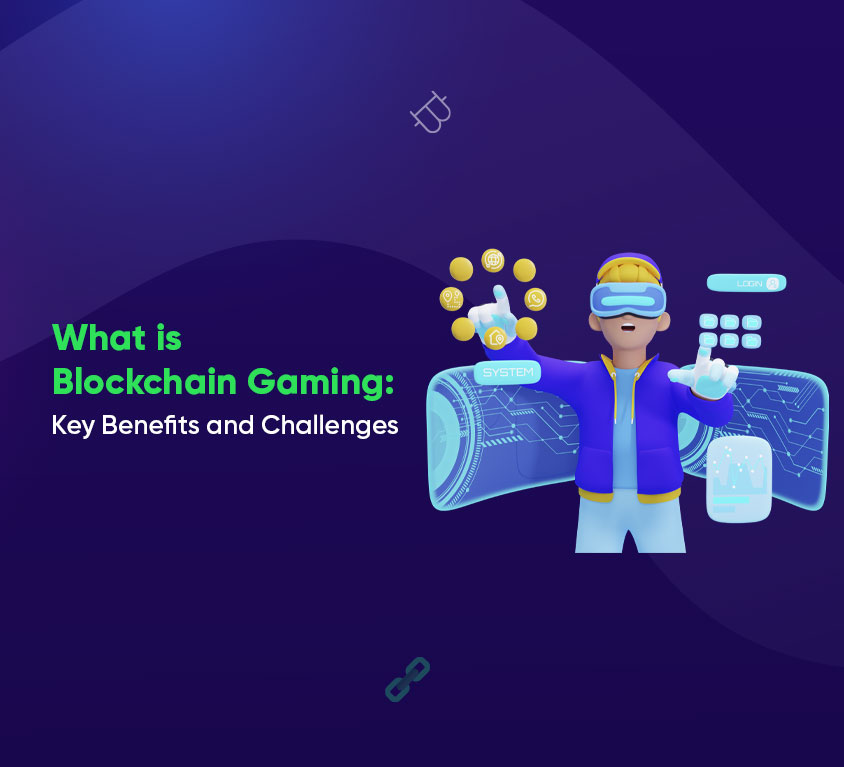The Ultimate Hookup Guide
Explore expert tips and advice on navigating the world of modern dating and hookups.
Gaming Meets Trust: How Blockchain Verification is Changing the Game
Discover how blockchain verification is revolutionizing gaming, ensuring trust and transforming player experiences like never before!
Exploring the Role of Blockchain in Gaming: Building Trust Through Verification
The gaming industry is undergoing a transformative revolution with the integration of blockchain technology, which is redefining how players engage with games and each other. By leveraging decentralized ledgers, blockchain creates a transparent environment where every transaction is securely recorded, allowing players to verify the authenticity of in-game assets, such as skins, characters, and virtual currencies. This level of verification not only enhances player experience but also builds trust among users, as they can rest assured that their investments in the game are safe and genuine. This shift towards a more trustworthy ecosystem is crucial in a market often riddled with scams and exploitation.
Moreover, the concept of ownership in gaming is being redefined through blockchain technology. Players now have true ownership of their digital assets, thanks to the use of non-fungible tokens (NFTs) that can be tracked and traded without central authority interference. This empowers gamers, as they can buy, sell, or trade their assets freely, fostering a thriving marketplace based on scarcity and demand. The rise of verification through blockchain not only assures players of the value of their items but also encourages developers to create innovative experiences that honor player investment, ultimately driving growth in the industry.

Counter-Strike is a popular first-person shooter game that has captivated millions of players worldwide. Known for its strategic gameplay and team-based mechanics, the game offers various competitive modes that test players' skills. For those looking to enhance their gaming experience, they can check the bc.game promo code for exciting bonuses and offers.
How Blockchain Technology is Revolutionizing In-Game Asset Ownership
Blockchain technology is rapidly transforming the landscape of in-game asset ownership, empowering gamers with unprecedented control and security over their virtual possessions. In traditional gaming environments, players often face limitations regarding the true ownership of their assets; items purchased in-game typically belong to the game developer, who can revoke access at any time. With the advent of blockchain, assets are transformed into non-fungible tokens (NFTs), which are securely recorded on a decentralized ledger. This ensures that players not only own their assets but can also sell, trade, or display them across various platforms.
Moreover, blockchain technology enhances transparency and trust within gaming ecosystems. As transactions are immutable and publicly verifiable, players can track the history and authenticity of their in-game assets. This not only combats fraud but also encourages a thriving marketplace, where players can engage in meaningful economic exchanges. As developers continue to integrate blockchain solutions into their gaming models, the implications for in-game asset ownership are profound, paving the way for a more fair and player-centric gaming experience.
Are Gamers Ready for Blockchain? Understanding the Shift Towards Decentralization
The world of gaming is on the brink of a transformative shift, largely driven by the advent of blockchain technology. As players increasingly seek control over their in-game assets, the question arises: are gamers ready for blockchain? This decentralized approach offers numerous advantages, such as true ownership of virtual items, enhanced security, and a transparent economy. By allowing players to trade their assets in a peer-to-peer manner, blockchain can create a more equitable gaming environment where players aren't just consumers, but also contributors to the ecosystem.
Moreover, the integration of blockchain into gaming aligns with the broader trend towards decentralization that has permeated various industries. Many gamers appreciate the community-driven aspects of blockchain, where decisions are made collaboratively rather than dictated by a central authority. As developers begin to explore the limitless possibilities of this technology—such as non-fungible tokens (NFTs) and decentralized finance models—it's clear that the future may hold a gaming landscape that not only embraces decentralization but thrives on it. Will traditional gaming frameworks adapt, or will they be left behind as gamers gravitate towards a more empowered and decentralized experience?